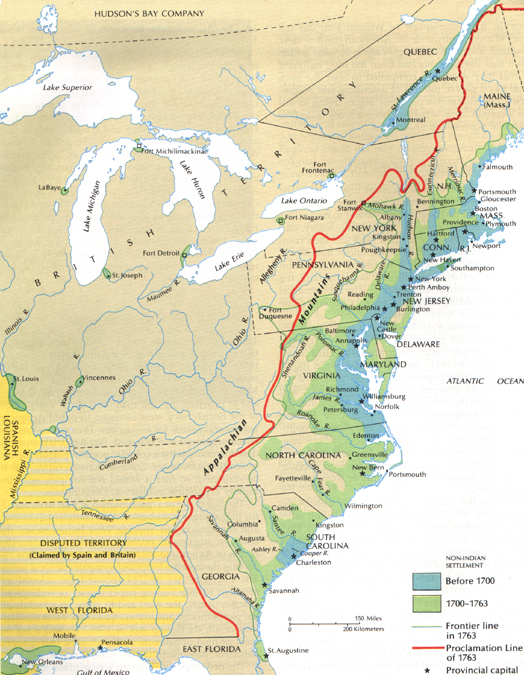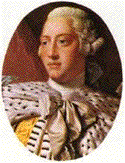 |
 |
|
|||||
|
|||||||
 |
|
|
© 2006 Sacred Heart School. All rights reserved. Archdiocese of Kansas City in Kansas |
|
Stamp and Townshend Acts
The King of England Tries to Tighten His Control
|
King George II thought it was time to tighten his control on the colonies for several reasons:
|
|
King George made a law called the Proclamation of 1763 which stated the colonists could not move westward over the Appalachian Mountains. (See map below.) The British passed several more laws which also angered the colonists. In 1764 a law was passed which said the colonies could not print or use their own money.
Finally in 1765 the Stamp Act was passed. The tax stamps had to be put on 54 kinds of papers, including playing cards, newspapers, wills and licenses. The payments varied from one cent on a newspaper to ten dollars on a college diploma. The payments had to be made in gold or silver.
The colonists began to speak out against the new taxes. Patrick Henry from Virginia spoke the loudest. He said the British Parliament made these laws, but no colonists were in the Parliament.
In October 1765 nine colonies sent people to a meeting in New York City to talk about the Stamp Act. They made the decision that the Parliament could not tax the American colonies since they had no representation in Parliament. The phrase stated by James Otis, a Boston lawyer, "No taxation without representation" was heard throughout the colonies. The men at this meeting sent a letter asking Britain to repeal the Stamp Act. At first, the British would not listen. Eventually, colonial protests led Parliament to repeal the Stamp Act in 1766.
However, they soon placed new taxes on the colonies.
In 1767 the British passed the Townshend Acts. This group of acts placed taxes on tea, glass, lead, paper, and paint. Many colonists refused to pay the taxes or to buy any goods made in England. Colonists hoped that by boycotting British goods, they would pressure the British merchants enough that the Parilament would repeal the Townshend Acts.


